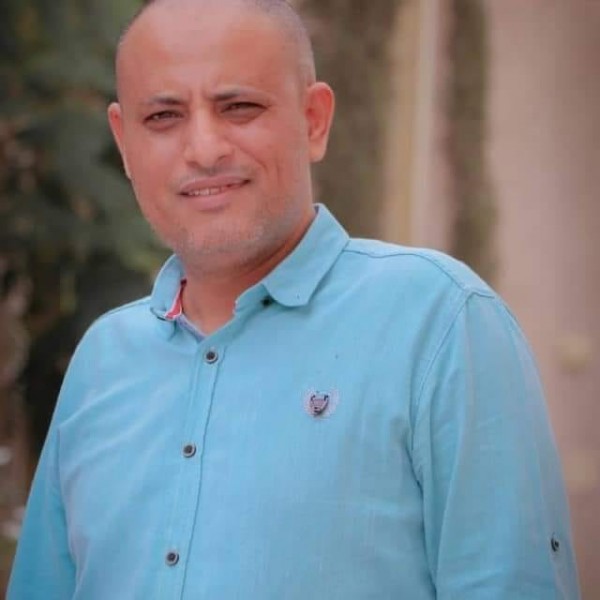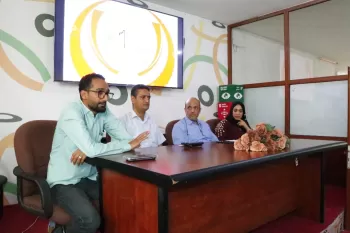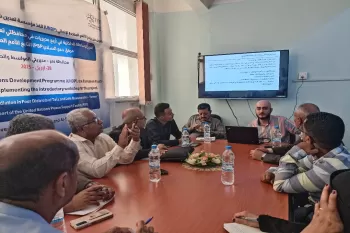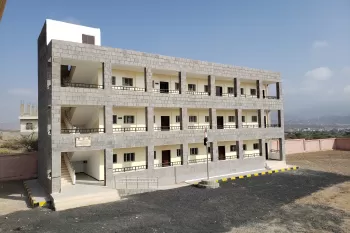Civil Society in Yemen: Reality and Hoped for
Six years of war, and likewise struggle and suffering, from which no one in Yemen has survived. Each takes his/her share of the consequences of this war in one way or another, with few and rare exceptions for war brokers and merchants. As for the majority of the Yemenis, they have been and are still suffocating with the raging fire in this forgotten country without integrated solidarity from the outside. All forms of support, although they appear to be large, are the result of some policies or mismanagement, which are still incomplete.
Employees without salaries, educational institutions without education, a deteriorating health sector, a poor living situation, and an insecure private sector, and even expatriates are not left with fears of return restricted by the closure of airports, cutting internal roads, and restricting on external remittances to some areas. Everyone in this country has its own concerns and challenges, which are combined with an ambiguous present and an unclear future, including local civil society organizations. Since the beginning of the conflict, they have spared no effort in contributing to the humanitarian response efforts, but they are facing numerous and great pitfalls that prevent them from playing a leading role in response efforts, building strategic partnerships with international organizations or direct access to donor resources, thus not satisfying the aspirations of the inside or the arrogance of the outside..
Although we, as workers in the humanitarian, development and peace-building fields, are making tremendous and strenuous efforts, within the framework of our mission and our humanitarian duty towards our society affected by this absurd and catastrophic war, but we face great difficulties and obstacles, whether with regard to the decline in funding or due to the delay of donors and financiers, which have been reflected in the doubling of pressures on us, so that we are unable to face operational expenses and the local society's dissatisfaction with the humanitarian interventions and projects that we implement. The society is often right that most of our interventions do not meet its needs or do not take place in a timely and appropriate manner.r.
At a time when the war is nearly seven years, and while Yemen is experiencing the worst humanitarian crisis in the world, local organizations are still working as sub-partners with UN and international organizations without the slightest indicators of achieving strategic partnerships. Moreover, international donors are still absent and far from reality, due to the lack of direct channels linking them to the local organizations present on the ground and at the forefront, as the UN and international organizations were and still play the role of mediator in all fields and interventions in this country.
This is despite the commitment of donors ,UN and international organizations to localize humanitarian work, in accordance with the agreements enshrined in the “Grand Bargain” and the “Charter for Change”. Unfortunately, there are no steps or indicators to localize humanitarian work in Yemen, which in turn has hampered the efforts of national organizations in empowering local communities, and put them in a permanent financial deficit, which led to limiting their ability to meet needs and build solid foundations for future response, until many local organizations were forced to lay off dozens of their workers, and became unable to pay their key staff..
It is no longer a secret that the international community has not fulfilled its commitments towards Yemeni civil society, nor has it maintain the level of humanitarian support, as well as its mismanagement of grants to Yemen. This has also been reflected in the lack of accountability with regard to commitments to localize humanitarian assistance.
Consequently, the ability of civil society organizations to respond adequately to humanitarian needs has declined. This requires the establishment of humanitarian work and the implementation of international agreements and charters in this aspect, leading to the development of the work of local organizations, by building solid foundations for humanitarian response, and developing visions and programs for future needs, all of which contribute to economic empowerment and social development, which will ultimately be reflected in enhancing self-reliance and actively contributing to development and peace-building efforts.
Here, on my name and on behalf of Tamdeen Youth Foundation, I send an appeal to international donors and financiers to reconsider the strategy of their humanitarian interventions in Yemen, and their relations with local organizations by building strategic relationships with them, consulting them to determine priorities before launching calls for project proposals, as well as paying attention to building their capacities, where many local organizations do not have the opportunity to strengthen capacity, as the short-term approach based on temporary projects does not provide an opportunity for a comprehensive and strategic capacity-enhancing process, nor is there coordination among donors to assess capacity, or develop plans to support institutional development in grants to local organizations.
Another call I address to the governments of Aden and Sana’a to support and provide all facilities to civil society organizations, starting with activating the partnership document between the government and civil society agreed upon in 2013, and contributing to the involvement of local organizations in the first track of peace-building efforts, and including them in the tripartite link known as humanity, development and peace, also emphasizing and stressing international donors and financiers to implement their commitments to localize humanitarian work in Yemen..
Hussein Al-Suhaily
Chairman of TYF




